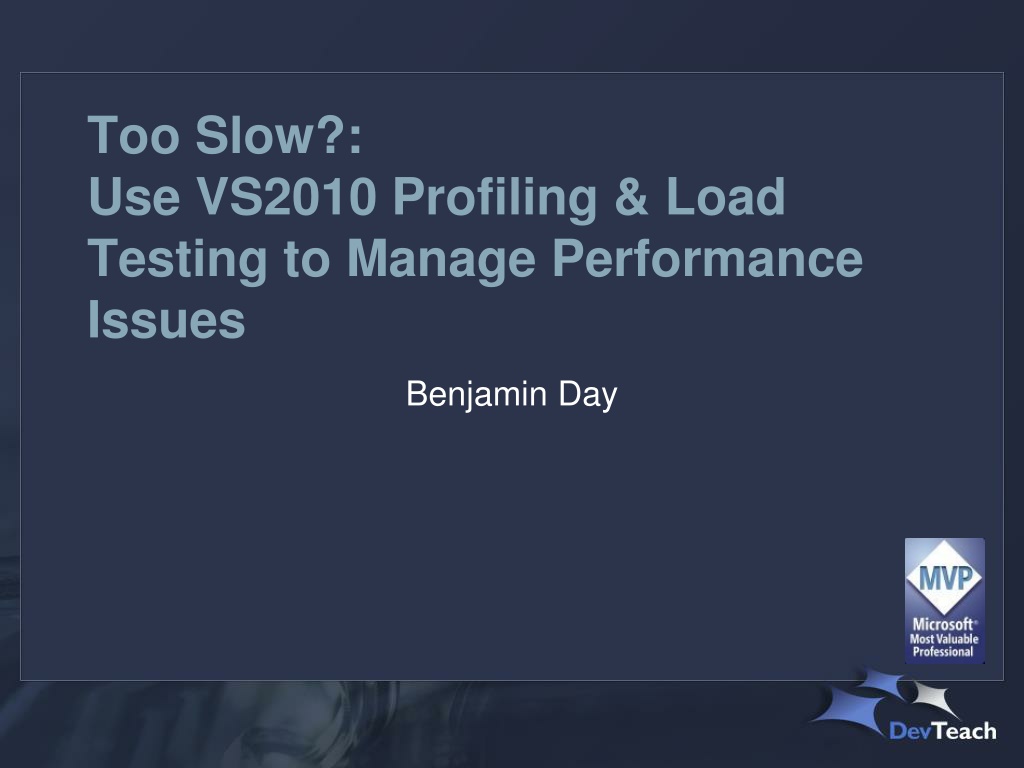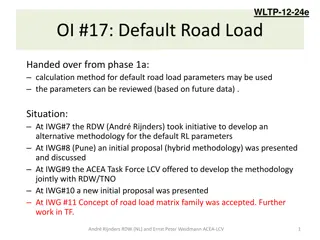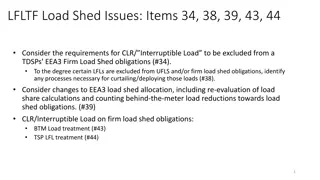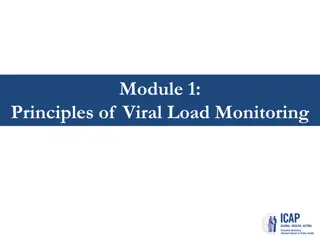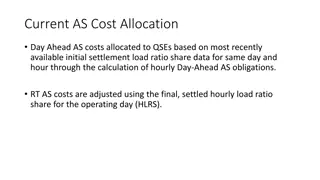Managing Performance Issues with VS2010 Profiling & Load Testing
Explore the basics of web performance tests and load tests using Visual Studio 2010 Profiling and Load Testing. Learn how to identify and address performance issues, establish performance baselines, and catch problems early in the development cycle. Discover best practices for enhancing application capabilities and optimizing performance.
Download Presentation

Please find below an Image/Link to download the presentation.
The content on the website is provided AS IS for your information and personal use only. It may not be sold, licensed, or shared on other websites without obtaining consent from the author. Download presentation by click this link. If you encounter any issues during the download, it is possible that the publisher has removed the file from their server.
E N D
Presentation Transcript
Too Slow?: Use VS2010 Profiling & Load Testing to Manage Performance Issues Benjamin Day
Benjamin Day Consultant, Coach, Trainer Scrum.org Classes Professional Scrum Developer (PSD) Professional Scrum Foundations (PSF) TechEd, VSLive, DevTeach, O Reilly OSCON Visual Studio Magazine, Redmond Developer News Microsoft MVP for Visual Studio ALM Team Foundation Server, TDD, Testing Best Practices, Silverlight, Windows Azure http://blog.benday.com benday@benday.com
Thanks. To my content reviewers Jerri Chiu, Microsoft Dennis Bass, Microsoft
The Agenda Basics of Web Performance Tests Load Tests Load Test Rigs Performance Explorer Existing application Identify performance problems Go from bad performance to good ASP.NET & WCF
Disclaimer: Im going to use the term load testing imprecisely a lot.
The Purpose of Load Testing Identify the capabilities of your application Possible goals Explore Verify Find the limits Crush
Best Practice: The Obligatory Eat Your Vegetables Load test throughout the development cycle. Catch problems early Establish performance baseline Watch for performance trends Cheaper to fix early Plan for performance
Cheaper To Fix Early 60 50 40 Cost to fix 30 20 10 0 Early Less Early Nearly Done Production Time
Dose Of Reality You know you should work that way. You probably don t. This talk is for you. You have problems. How do you figure out what s going wrong?
Inspiration for this talk Real customer engagement Spent years developing a web application Released it Seriously grumpy customers Huge hardware ~20 simultaneous users Fixed it 4000+ simultaneous users Reduced hardware
The Tools Web Performance Tests Load Tests Load Test Rigs Visual Studio Ultimate Visual Studio Premium Profiling Tools Performance Wizard
Disaster Strikes. The application is deployed to production. Users are losing their minds. Intermittent errors on the site. Site is slow. Your boss is seriously angry. Fix it!
The Problem. No Repro Works on my box. You don t know what the errors are. The site seems to work fine. Wild guess: it dies under load. You need to create some load.
The Plan. 1. Script user activity with Web Performance Tests 2. Simulate a mix of users using Load Tests 3. Simulate lots of users with a Load Test Rig 4. Reproduce the errors...hopefully 5. Find code problems with the Performance Wizard 6. Fix the code
The Plan. 1. Script user activity with Web Performance Tests 2. Simulate a mix of users using Load Tests 3. Simulate lots of users with a Load Test Rig 4. Reproduce the errors...hopefully 5. Find code problems with the Performance Wizard 6. Fix the code
What is a Web Performance Test? Test type in Visual Studio 2010 Ultimate Simulate a user using an ASP.NET application HTTP traffic Building block of Load Tests
Tip: Web Tests & User Stories Web Tests should simulate a User Story Example: As an administrator, I need to search for a person by username so that I can deactivate that person s account. As a customer, I want to order a pizza and pay with a credit card. Helps to organize your suite
Data-driven Web Tests Run web test once per row in data source Simulate multiple users doing *similar* actions Data source types OLE DB, CSV, XML Parameterization Better tests, better coverage
WEB TESTS IN THE UNDERPERFORMING APPLICATION
The Plan. 1. Script user activity with Web Performance Tests 2. Simulate a mix of users using Load Tests 3. Simulate lots of users with a Load Test Rig 4. Reproduce the errors...hopefully 5. Find code problems with the Performance Wizard 6. Fix the code
What are Load Tests? Mix of Web Performance and Unit Tests Simulates a mix of users doing a mix of things Simulate Network speeds Different browsers Varying user activity loads
Why would you put a Unit Test in a Load Test? Helpful for testing WCF Cumbersome to simulate WCF via Web Test (You d have to re-invent the wheel.) Unit tests can re-use the WCF libraries (Done and done.) Important for Silverlight and SOA http://wcfloadtest.codeplex.com/ http://sqlloadtest.codeplex.com/
HEY KIDS, LET S CREATE SOME LOAD TESTS! ( and then you all say, Hooray! )
The Plan. 1. Script user activity with Web Performance Tests 2. Simulate a mix of users using Load Tests 3. Simulate lots of users with a Load Test Rig 4. Reproduce the errors...hopefully 5. Find code problems with the Performance Wizard 6. Fix the code
Two ways to run load tests. Generate load from Visual Studio 2010 Uses only 1 core/processor Limited to 250 simulated users Generate load from a Test Rig Far better test Simulate lots more users
Load Test Agent Licensing Microsoft Visual Studio Team System 2010 Test Load Virtual User Pack Simulate up to 1000 virtual users Used to cost $$$
Visual Studio 2010 Load Test Feature Pack Used to cost ~$3500.00 per 1000 simulated users Free starting March 8, 2011 Visual Studio 2010 Ultimate with MSDN Simulate unlimited amount of load (Limited only by your hardware.) http://www.microsoft.com/visualstudio/ en-us/products/2010-editions/load-test-virtual-user-pack
Load Test Rig & The Application Controller Orchestrates Licensing Perf Mon Counters Agent (1..n) Simulates users
The Plan. 1. Script user activity with Web Performance Tests 2. Simulate a mix of users using Load Tests 3. Simulate lots of users with a Load Test Rig 4. Reproduce the errors...hopefully 5. Find code problems with the Performance Wizard 6. Fix the code
The Plan. 1. Script user activity with Web Performance Tests 2. Simulate a mix of users using Load Tests 3. Simulate lots of users with a Load Test Rig 4. Reproduce the errors...hopefully 5. Find code problems with the Performance Wizard 6. Fix the code
Profiling Tools Load Tests help you find issues in a system Surface issues Profiling helps you find issues in the code Unit Tests, Web Tests, Load Tests Repeatable Good for targeted tuning System under natural load Not repeatable Looking for rough patterns
Profiling Methods Gathers information at intervals (clock cycles) No code modifications Use this for first pass explorations Sampling Modifies your code Gathers detailed timing and count information Instrumentation Concurrency Multi-threaded code profiling Object creation Garbage collection .NET Memory Interaction between your application and SQL Server via ADO.NET Tier Interaction
Load Test Performance Sessions Via Wizard Must be only Web Performance Tests Can t profile via Load Test Rig ASP.NET must be running in x86 mode
LETS GO PROFILE SOME STUFF.
The Plan. 1. Script user activity with Web Performance Tests 2. Simulate a mix of users using Load Tests 3. Simulate lots of users with a Load Test Rig 4. Reproduce the errors...hopefully 5. Find code problems with the Performance Wizard 6. Fix the code
For More Information: Articles http://tinyurl.com/3xjqgvz http://tinyurl.com/2ulvvvr
For More Information: Microsoft Links Visual Studio Performance Testing Quick Reference Guide http://vsptqrg.codeplex.com/ Content Index for Web Tests & Load Tests http://tinyurl.com/ye97e52
For More Information: Microsoft Bloggers VS Team Test Blog Site http://blogs.msdn.com/b/vstsqualitytools/ Ed Glas - http://blogs.msdn.com/edglas/ Bill Barnett - http://blogs.msdn.com/billbar/ Sean Lumley - http://blogs.msdn.com/slumley/ Dennis Stone - http://blogs.msdn.com/densto/ Mike Taute - http://blogs.msdn.com/mtaute/ Neelesh Kamkolkar - http://blogs.msdn.com/b/nkamkolkar/
Thank you. blog.benday.com | www.benday.com | benday@benday.com
